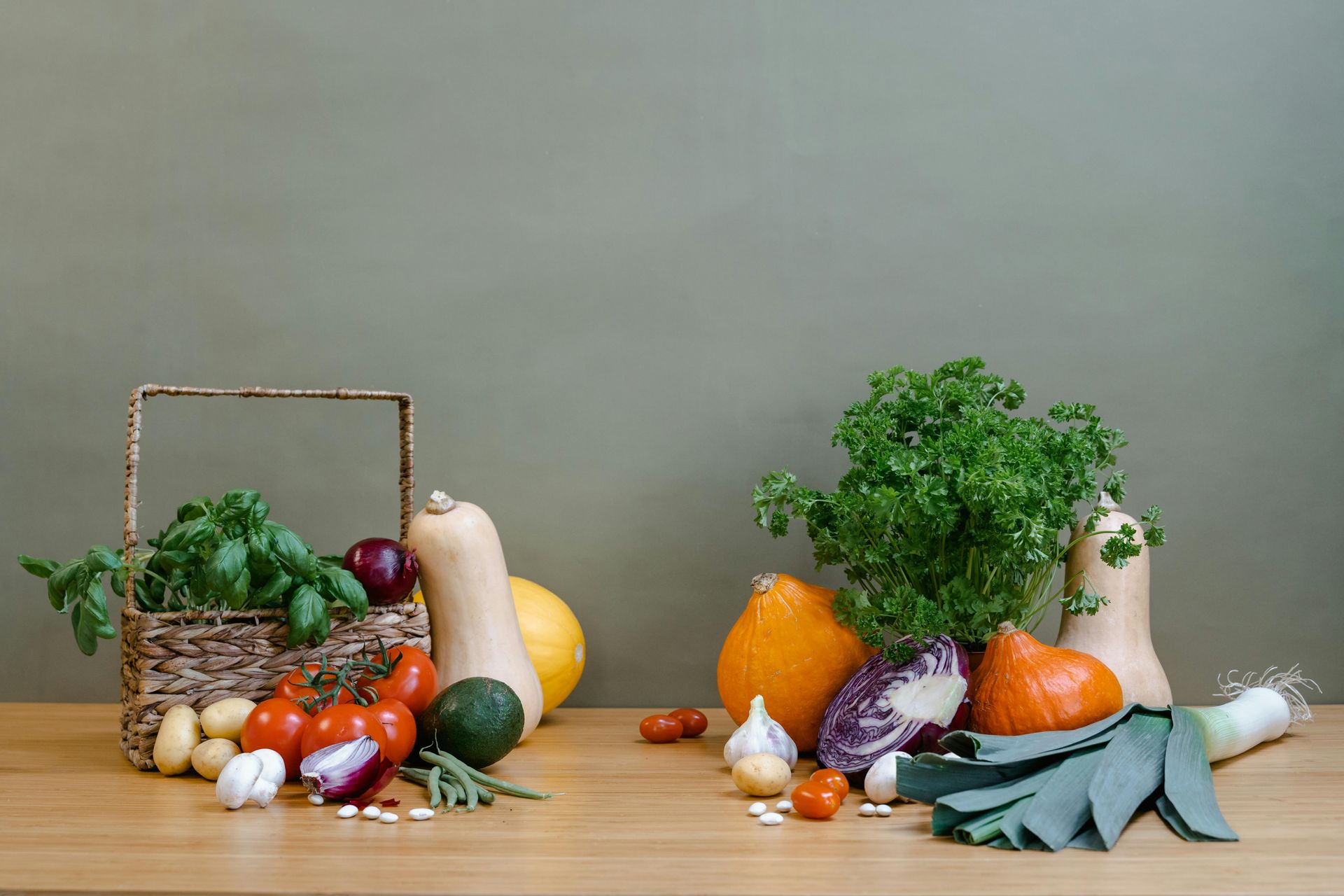What Can I Take for Energy While Pregnant Without Risk?
What can I take for energy while pregnant? Many expectant mothers often ask this. The answer lies in vitamins, minerals, nutrient-rich foods, and proper hydration.
Pregnancy brings joy but also physical and emotional demands. Many women struggle with fatigue during this period. This tiredness often comes from hormonal changes, increased nutritional needs, and common deficiencies such as low iron levels or vitamin B12. Your body is also working harder to support your growing baby, which naturally drains energy.
With the right choices, you can restore your energy while keeping your pregnancy safe.
Safe Supplements for Energy During Pregnancy
Supplements help fill nutritional gaps that cause fatigue. However, take it only under the guidance of your healthcare provider. Below are the most important supplements that help provide energy during pregnancy.
Prenatal Vitamins
Prenatal vitamins are multivitamins that combine essential nutrients into a single pill. Most multivitamins contain folate, iron, vitamin D, calcium, and iodine. These nutrients reduce fatigue, support healthy fetal growth, and lower the risk of birth complications. Taking them daily ensures you avoid common deficiencies that cause low energy.
Prenatal supplements are not a replacement for a healthy diet. They are a reliable safety net for nutrition during pregnancy. Always choose a prenatal vitamin recommended by your healthcare provider to match your personal needs.
Iron
Iron is essential for producing hemoglobin, the protein in red blood cells that carries oxygen. Without enough iron, your body cannot supply sufficient oxygen to tissues, leading to anemia and extreme fatigue. Pregnant women need nearly double the amount of iron compared to non-pregnant women.
Supplements help restore iron levels but should only be taken under medical supervision, as excessive iron can cause constipation, nausea, or abdominal pain.
To improve absorption, combine iron with vitamin C-rich fruit and vegetables. Avoid taking it with calcium or dairy foods, which block absorption.
Folate
Folate (folic acid) is a B vitamin and is one of the most critical nutrients during pregnancy. It helps form your baby’s brain and spinal cord, preventing neural tube defects. Folate also supports red blood cell production and energy metabolism, keeping you from feeling overly tired.
Because many women struggle to get enough folate from diet alone, supplementation is advised. Most prenatal vitamins already contain the recommended daily amount. For extra support, eat folate-rich fruits and vegetables such as spinach and beans to help bridge the gap.
Vitamin D
Vitamin D helps your body absorb calcium for strong bones and teeth. It supports muscle strength, immune function, and energy production. Low vitamin D levels can cause weakness, muscle aches, and fatigue.
Your body naturally produces vitamin D when exposed to sunlight, but many people, especially those living in cloudy or cold regions, don’t get enough. Supplements may be recommended if blood tests show a deficiency. Safe amounts vary, so it’s best to follow your doctor’s advice.
Vitamin D also benefits your baby by supporting healthy bone development.
Magnesium
Magnesium is often overlooked, yet it plays a role in more than 300 body processes, including energy production. It helps convert food into fuel and supports muscle and nerve function. Low magnesium can lead to cramps, poor sleep, and fatigue.
Pregnant women are at higher risk of deficiency, especially if their diet lacks nuts, seeds, or leafy greens. Supplements can improve rest and reduce tiredness, but too much magnesium may cause diarrhea or stomach upset.
A healthcare provider can recommend the right dosage. Natural food sources remain a safe way to increase intake.
Ginger
Ginger is not a direct energy booster, but it helps indirectly by easing nausea and vomiting, which are common in early pregnancy. Constant nausea drains energy and makes it hard to eat enough food.
Ginger supplements, ginger tea, or even small amounts of raw ginger can reduce morning sickness, making it easier to stay nourished and energized. While ginger is generally considered safe in moderate amounts, it should still be discussed with your doctor, as high doses may cause heartburn or interact with certain medications.
Fish Oil (Omega-3 Fatty Acids)
Fish oil provides omega-3 fatty acids. These healthy fats are essential for your baby’s brain, eyes, and nervous system development. For mothers, omega-3s reduce inflammation, support heart health, and may improve mood, which indirectly helps maintain steady energy.
Many women do not get enough omega-3s through diet alone, especially if they eat little fish. Supplements can safely fill this gap, but it is important to choose purified, pregnancy-safe products that are free from mercury and other contaminants. Typical prenatal omega-3 supplements are sourced from small, oily fish or algae, making them safer for both you and your baby.
While omega-3s are not stimulants, they help your body function more efficiently. They improve circulation and cell function, which supports long-term energy. Always consult your doctor for the correct dosage.
Natural Foods that Boost Energy

Food is one of the safest and most reliable ways to restore energy during pregnancy. The right choices supply steady fuel and essential nutrients that keep you strong and support your baby’s growth. Unlike stimulants or processed snacks, natural foods balance blood sugar and provide long-lasting vitality.
Whole Grains
Whole grains like oats, brown rice, barley, and quinoa give slow, steady energy. They also support healthy weight gain in pregnancy without energy crashes. Their high fiber content also improves digestion and keeps blood sugar stable.
Whole grains are rich in B vitamins, which are crucial for converting food into energy. Try oatmeal for breakfast or quinoa in salads to feel energized throughout the day.
Lean Proteins
Protein-rich foods help repair tissues, build muscle, and maintain healthy growth for both you and your baby. Lean sources such as chicken, turkey, eggs, beans, and lentils provide steady energy without excess fat.
Protein also helps balance blood sugar, preventing dips that make you feel tired. Eating protein at every meal keeps you fuller for longer and reduces cravings. A boiled egg or bean salad is a safe way to recharge quickly.
Fruits and Vegetables
Fruits and vegetables deliver quick energy through natural sugars and important nutrients. Bananas supply potassium, which supports muscle function and reduces fatigue. Oranges and berries provide vitamin C, which strengthens immunity and helps absorb iron.
Leafy greens like spinach, kale, and broccoli are packed with folate and iron, reducing pregnancy-related tiredness.
Eating a colorful mix ensures a variety of vitamins and minerals. Smoothies, salads, or lightly steamed vegetables are safe and energizing options.
Healthy Fats
Healthy fats are a dense source of energy that also support brain development in your baby. Avocados provide monounsaturated fats along with fiber and potassium. Nuts and seeds offer omega-3 fatty acids, protein, and magnesium for muscle and nerve function.
Olive oil adds heart-healthy fats and helps absorb fat-soluble vitamins like A, D, E, and K. Adding small portions of these foods to meals provides steady energy and keeps you satisfied.
A handful of almonds or avocado toast makes a nutritious snack.
Safe Hydration Options for Energy Support

Dehydration is a common but overlooked cause of pregnancy fatigue. Your body uses more fluids to support increased blood volume and amniotic fluid. Even mild dehydration can cause tiredness, headaches, or dizziness, making it harder to stay energized.
Drinking the right fluids throughout the day helps restore energy safely and supports your baby’s development.
Water
Water is the safest and most essential drink during pregnancy. It supports circulation, digestion, and temperature regulation. Aim for at least eight to ten glasses daily, or more if you are active.
Sipping small amounts regularly prevents sudden thirst and keeps energy levels stable. Carrying a reusable bottle helps you stay consistent and avoid dehydration.
Coconut Water
Coconut water provides natural electrolytes like potassium and magnesium that restore balance when you feel drained. It is especially helpful after mild dehydration from heat or light activity.
Unlike commercial sports drinks, coconut water is low in sugar and free from artificial additives. Drinking it in moderation refreshes your body while supporting energy production. Always choose unsweetened coconut water for the best health benefits.
Diluted Natural Fruit Juices
Fruit juices add hydration while supplying vitamins and minerals. Diluting them with water reduces sugar content and prevents spikes in blood sugar. Orange juice provides vitamin C, which boosts iron absorption and fights fatigue.
Apple juice offers natural sugars for quick energy without caffeine or stimulants. Limit portions to small glasses to enjoy the benefits without excess sugar.
Herbal Teas
Certain herbal teas can provide gentle hydration and energy support. Ginger tea helps reduce nausea, making it easier to eat well. Peppermint tea can soothe digestion and refresh your body.
However, not all herbal teas are safe in pregnancy. Some herbs may trigger contractions or affect hormones. Always confirm with your doctor before adding herbal teas to your routine.
IV Hydration Therapy

In some cases, IV hydration therapy will be recommended to restore fluids and nutrients quickly. This treatment delivers electrolytes, vitamins, and fluids directly into your bloodstream for fast results. It helps when oral hydration is difficult due to nausea, vomiting, or severe dehydration.
IV therapy must only be done under medical supervision to ensure safety for both mother and baby. It is not a daily solution, but it can provide effective support when traditional hydration is not enough.
At Pure IV Tennessee, licensed professionals administer IV therapy with a focus on safety and comfort, giving mothers peace of mind while restoring energy.
What to Avoid When Choosing Energy Boosters
Not everything marketed as an energy booster is safe during pregnancy. Some products can harm you or your baby, even if they appear natural or harmless. Unsafe or risky energy boosters include:
- Caffeinated drinks: Coffee, sodas, and energy drinks raise heart rate and may affect fetal development.
- Energy shots or powders: Often contain high caffeine and stimulants, which are not recommended in pregnancy.
- Unregulated herbal supplements: Many herbs lack research and may interfere with pregnancy hormones.
- Over-the-counter stimulant pills: Marketed for weight loss or energy, but can cause dangerous side effects.
- Sugar-loaded drinks and snacks: Provide a quick spike followed by a crash, leaving you more tired.
- Alcohol-based tonics: Sometimes marketed for energy, but unsafe in any amount during pregnancy.
Instead of relying on these products, focus on safe vitamins, nutrient-dense foods, and proper hydration to maintain your energy.
The Bottom Line
Pregnancy changes the way your body uses energy, and feeling tired is completely normal. What matters is choosing safe ways to support yourself without risking your baby’s health.
Focus on balance, listen to your body, and always ask your doctor for guidance when unsure. Sometimes, the smallest safe adjustments, like staying hydrated, make the biggest difference in how you feel. And if oral hydration methods are insufficient, doctor-supervised pregnancy IV hydration will help. At Pure IV Tennessee, our licensed professionals bring IV hydration therapy to your doorstep.













